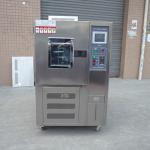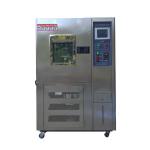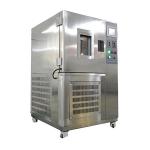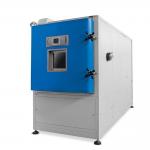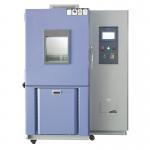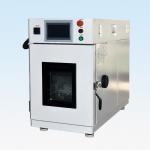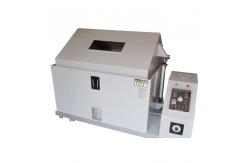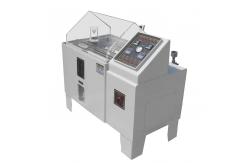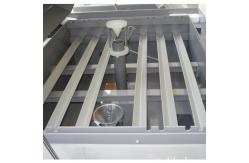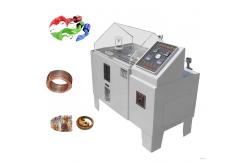In the highly competitive automotive industry, the durability and
corrosion resistance of vehicle components are non-negotiable. The
Salt Spray Corrosion Test Machine for Automotive Industry emerges
as a crucial tool, specifically designed to evaluate and enhance
the performance of automotive parts in the face of corrosive
environments. This advanced test machine is dedicated to subjecting automotive
components and materials to a simulated salt spray environment. It
serves automotive manufacturers, suppliers, and research
institutions. The primary objective is to determine the corrosion
resistance of various parts such as chassis, body panels, engine
components, and electrical connectors. By replicating the harsh
conditions of salt exposure that vehicles encounter on roads,
especially in coastal and winter regions, it enables manufacturers
to identify potential weaknesses, optimize product designs, and
ensure compliance with industry standards and customer
expectations. - Robust and Corrosion-Resistant Construction
- The test machine is built with a heavy-duty stainless steel frame
and enclosure. The stainless steel not only provides excellent
durability but also withstands the corrosive effects of the salt
spray. The interior of the chamber is designed to be easily cleaned
and maintained. The door is equipped with a reliable locking
mechanism and a transparent viewing window, allowing operators to
monitor the test process without interfering with the internal
environment. The seals and gaskets used are of high quality to
ensure a leak-free chamber, maintaining the integrity of the salt
spray atmosphere.
- Precision Salt Spray Generation System
- The heart of the machine is its advanced salt spray generation
system. It can accurately control the concentration of the salt
solution, typically ranging from 3.5% to 5.5% by weight. The system
utilizes precision pumps and specially designed nozzles to produce
a fine and uniform salt spray. The nozzles are strategically placed
to ensure even distribution of the salt particles throughout the
chamber, mimicking the natural deposition of salt on automotive
parts. The flow rate of the salt spray can be precisely adjusted,
allowing for the simulation of different levels of salt exposure,
from mild coastal conditions to heavy winter road salt
applications.
- Accurate Temperature and Humidity Control
- The machine offers precise control over temperature and humidity.
The temperature can be set within a range of 10°C to 55°C, with an
accuracy of ±0.3°C. The humidity control range extends from 75% to
95% relative humidity, with an accuracy of ±2% RH. Temperature and
humidity play significant roles in the corrosion process, and the
accurate control of these parameters ensures that the test
conditions closely resemble real-world scenarios. For example, in a
hot and humid coastal area, the combination of high temperature,
humidity, and salt spray can accelerate corrosion, and this machine
can replicate such conditions accurately.
- Intuitive Control Panel and Data Acquisition Interface
- The equipment is equipped with an intuitive control panel that
simplifies the operation and parameter setting. Operators can
easily adjust the salt spray concentration, temperature, humidity,
and test duration using the user-friendly interface. The control
panel also provides real-time displays of the current test
conditions, as well as any alarms or warnings. The machine is
integrated with a comprehensive data acquisition system. It records
all relevant test data, such as temperature and humidity histories,
salt spray concentration profiles, and any observable signs of
corrosion in the test samples. The data can be stored in a built-in
memory or exported to external storage devices for further
analysis. The system can also generate detailed test reports in
various formats, facilitating easy documentation and sharing of
results.
- Versatile Sample Fixturing and Placement
- The interior of the chamber is designed to accommodate a wide
variety of automotive sample sizes and shapes. It can be equipped
with adjustable racks, trays, and custom-made holders to ensure
proper positioning and exposure of the test samples. The sample
fixturing is made of materials that are resistant to corrosion and
do not contaminate the test environment. This flexibility allows
for the testing of different products, from small electrical
connectors and bolts to large body panels and engine blocks. For
examp
|
